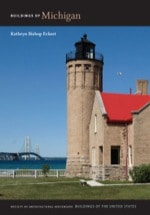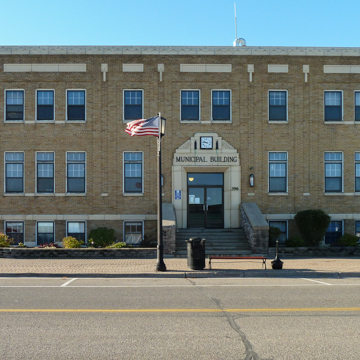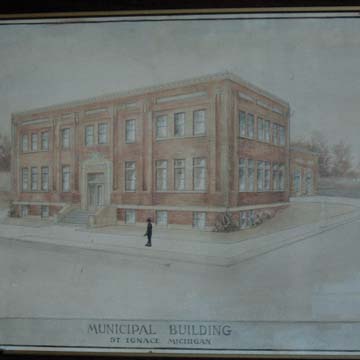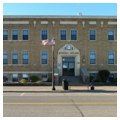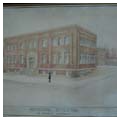The plainness and severity of this modest little city hall match the drabness of the Great Depression era in which it was built. It was designed by Anderson, constructed under the supervision of C. A. Minier, and financed with funds from the WPA. The classical and formal rectangular two-story brick block is on a raised basement and topped with a flat roof. It has enough Moderne details to convey a contemporary feeling. Windows are grouped within vertical panels between pierlike members with a hint of a capital. Horizontal cast-concrete decorative bands make up the frieze of the entablature and a cornice with a decorative zigzag-like motif runs above. Stairs rise to the central entrance, which is surrounded by a decorative cast-stone enframement.
You are here
St. Ignace Municipal Building
If SAH Archipedia has been useful to you, please consider supporting it.
SAH Archipedia tells the story of the United States through its buildings, landscapes, and cities. This freely available resource empowers the public with authoritative knowledge that deepens their understanding and appreciation of the built environment. But the Society of Architectural Historians, which created SAH Archipedia with University of Virginia Press, needs your support to maintain the high-caliber research, writing, photography, cartography, editing, design, and programming that make SAH Archipedia a trusted online resource available to all who value the history of place, heritage tourism, and learning.

